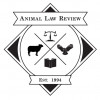Volume Eight, 2001-2002
INTRODUCTION
ENFORCING EXISTING RIGHTS
by Cass R. Sunstein
REMARKS
THE LEGAL STATUS OF NONHUMAN ANIMALS
comments from Taimie L. Bryant, Anthony D’Amato, David S. Favre, Gary L. Francione, Jennifer Friesen, Clark J. Freshman, Robert Garner, Thomas G. Kelch, Michael Radford, William A. Reppy, Jr., Nicholas Robinson, Helena Silverstein, Peter Singer, and Steven M. Wise
ESSAYS
POLITICAL IDEOLOGY AND THE LEGAL STATUS OF ANIMALS
by Robert Garner
Mr. Garner challenges the traditional notion that significant improvements to animals’ well being cannot be achieved absent an abolition of their status as mere property. In so doing, Mr. Garner explores political factors affecting animal protection, including the current ideological climate and western notions of liberalism.
ANIMAL LAW AND ANIMAL RIGHTS ON THE MOVE IN SWEDEN
by Helena Striwing
Ms. Striwing, an attorney at law in Sweden, provides a glimpse into Swedish laws and practices affecting animals in that country. She discusses the development and characteristics of such laws and offers suggestions regarding implementation and enforcement that may also be utilized by other countries in their quests to afford animals greater legal protections.
ARTICLES
by Peter Stevenson
Mr. Stevenson analyzes the free trade rules of the World Trade Organisation and discusses their detrimental impact on certain measures designed to protect animals. Specifically, he discusses U.S. laws to safeguard dolphins and sea turtles, as well as proposed EU laws regarding leghold traps and cosmetic testing on animals. Mr. Stevenson provides an analysis of current WTO rule interpretation, identifies ways in which the rules should be reformed, and provides a less restrictive interpretation that would permit the existence of measures designed to improve animal welfare.
ROOTS OF HUMAN RESISTANCE TO ANIMAL RIGHTS: PSYCHOLOGICAL AND CONCEPTUAL BLOCKS
by Steven J. Bartlett
Mr. Bartlett discusses the psychological and conceptual impediments to human acceptance of the notion of animal rights. He posits that human characteristics such as homocentrism, human narcissism, and species-selfishness all function to keep animals from securing their rightful place in the existing social and legal framework. Mr. Bartlett also argues that human attitudes, policies, and behavior affecting animals are influenced by underlying conceptual pathologies, and that animal advocates would be well served by taking into account such human pathologies in their quest for greater animal protection.
SHOOT FIRST, TALK LATER: BLOWING HOLES IN FREEDOM OF SPEECH
by Jacqueline Tresl
Ms. Tresl examines the constitutionality of hunter harassment laws. When a five-step doctrinal analysis is applied to hunter harassment statutes, it is clear that the statutes are content-based and subject to the strictest of scrutiny. Because the statutes fail the strict scrutiny test, they therefore violate the American citizenry’s First Amendment right to free expression.
THE ECONOMIC VALUE OF COMPANION ANIMALS: A LEGAL AND ANTHROPOLOGICAL ARGUMENT FOR SPECIAL VALUATION
by Geordie Duckler
Mr. Duckler delves into valuation issues that arise in the context of recovery of non-economic damages for death and injury to companion animals. He argues that the special nature of companion animals in society necessitates an assigned monetary worth to such animals that is distinct from and exceeds mere market value. As support for this contention, Mr. Duckler provides relevant legal, sociological, and anthropological analyses.
COMMENTS
CANNING CANNED HUNTS: USING STATE AND FEDERAL LEGISLATION TO ELIMINATE THE UNETHICAL PRACTICE OF CANNED “HUNTING”
by Laura J. Ireland
Ms. Ireland explores the methodologies, ethics, and dangers of canned hunting and offers ways to challenge the practice through existing and proposed state and federal statutes. In so doing, Ms. Ireland examines statutory law as it relates to exotic animals, the definition of “animal,” the anti-cruelty exemptions, and husbandry practices. Finally, the feasability of statutory enforcement by agencies is examined.
COULD A CHIMPANZEE OR BONOBO TAKE THE STAND?
by Angela Campbell
Ms. Campbell analyzes the federal witness competency standards and applies them to the current scientific knowledge of chimpanzees and bonobos. Such comparisons indicate that chimpanzees and bonobos could potentially meet these standards and therefore be legally competent witnesses in certain circumstances.
LEGISLATIVE REVIEW
2001 LEGISLATIVE REVIEW
by Laurie Fulkerson
